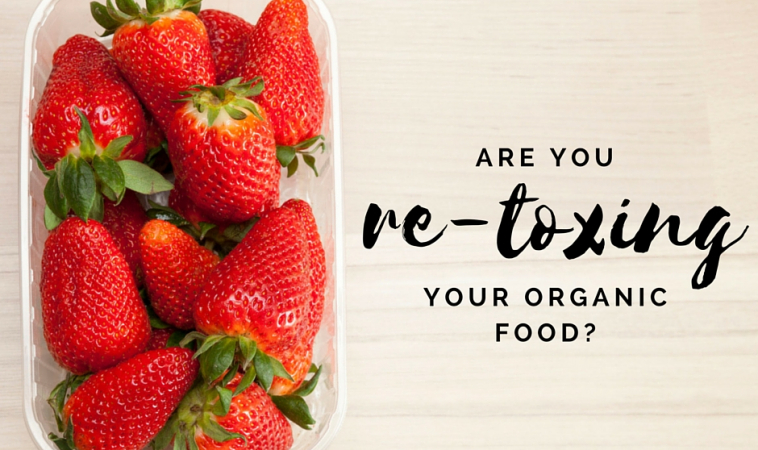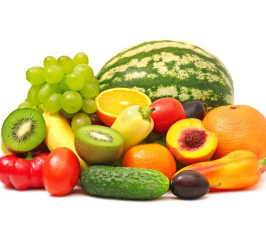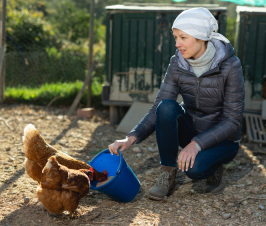Shopping for organic groceries can be expensive but is an investment in your family’s health. What if you are “re-toxing” your expensive organic food once you get home?
In the midst of balancing busy lives, we all make the effort to cook better meals at home and keep our families healthier. However, we may be not be aware of the dangerous chemicals that exist in our food storage, slow cookers, cookware and even pre-packaged foods. There are many toxins leaching into our food through our kitchenware, and as time progresses our bodies grow more at risk for developing numerous health issues by coming in contact with these toxins. As we make healthier decisions in grocery markets and meal planning, let us begin to also make healthier decisions in our food preparation and storage.
Dangers in Plastic Food Storage
Compounds linked to cancer and infertility
Plastic is often the most popular choice for food storage and other kitchenware, as it is easily moldable into any shape, it is cheap to produce and buy, doesn’t break easily and is thought to be kid-friendly. However, plastic contains chemicals that make it extremely toxic to handle, especially for infants, children and pregnant women. Bisephenol-A, or BPA, is the most widely known chemical found in plastic. BPA disrupts the endocrine system by mimicking estrogen and “interferes with the production, secretion, transport, action, function and elimination of natural hormones.”[i] BPA is linked to reproductive disorders, male impotence, heart disease, diabetes, brain function, memory and learning issues, breast cancer and many other health problems.[ii] Due to the emerging research on the dangers of BPA, many BPA-free plastic products are becoming available. However, BPA-free plastic is not free of toxins and is just as harmful to you and your family. PBDEs, or polybrominated diphenyl ethers, are better known as flame retardants and are known to cause reproductive problems and alter thyroid levels. Phthalates, the chemical that makes plastic more pliable, is also linked to reproductive issues, as well as inflammation in infants. When BPA is removed from plastics, it is often replaced with equally dangerous chemicals, including carcinogens and neurotoxins. BPA-free plastics are toxic and still off gas compounds that negatively affect health. BPS and BPF are examples of conpunds often found in “BPA-free” plastics and coatings
Microwaving Leaches Harmful Chemicals
In addition to being unsafe because of toxic chemicals, plastic is unsafe to use as food storage due to the health risks of heating it in the microwave. When food is placed in a plastic container and microwaved, BPA and phthalates may leak into the food and according to the U.S. Department of Health and Human Services, “exposing plastic containers to high heat conditions can cause the plastic to leach various kinds of potentially harmful chemicals into its food contents.”[iii] Although it is inexpensive and often the easiest choice, plastic kitchenware, bags, lunch boxes and containers are unhealthy. When it comes to storing and reheating food, glass, stainless steel and paper food storage is best for your health.
Slow Cookers Not So Convenient
Slow cookers have made quite the resurgence in recent years due to the convenience and health benefits. However, you may not be as aware of the dangers your slow cooker has on your health. If your crockpot is not lead-free, you are potentially harming your health. Lead, a neurotoxic heavy metal, is a methodical poison that affects every organ in the body, and although it is harmful for all ages, it is especially detrimental to the health of children. According to medical consensus, there is no safe level of lead exposure. As lead poisoning is a cumulative matter, it “occurs when lead builds up in the body, often over a period of months or years. Even small amounts of lead can cause serious health problems.”[iv] Lead poisoning in children is linked to learning disabilities, developmental delays, lower IQ scores, anemia and other health issues. In adults, lead poisoning is linked to chronic abdominal pain, sleep problems, headaches, fatigue, high blood pressure, memory loss, kidney dysfunction, etc.[v] If your slow cooker is not lead-free, the chances of lead being leaked into your food is high. When ceramic vessels are heated to just 80 degrees Fahrenheit, they release ten times the amount of lead than they do at room temperature. Slow cookers heat up to more than 250 degrees Fahrenheit, which makes the risk for lead poisoning very high. To keep your family healthy and at low risk for lead poisoning, invest in a lead-free slow cooker.
Choose Pots and Pans Carefully to avoid Lead and Teflon
There are multiple types of pots and pans, so it is often difficult to know which ones are more hazardous to your health. Glass and enamel coated pans contain lead, and as written earlier, lead has numerous negative repercussions on your health. Aluminum pots and pans create an extreme chemical reaction when cooking food, as aluminum is absorbed into the food. Excess aluminum has been associated with increased risk of estrogen-driven cancers, stomach ulcers and Alzheimer’s disease.[vi] Non-stick or Teflon pots and pans are most hazardous due to the chemical C8, or Perfluorooctanoic acid (PFOA). PFOA stays present in the bloodstream for up to 4 years and has even shown to be present in breast milk. Early studies, like Epidemiologic Evidence on the Health Effects of Perfluorooctanoic Acid (PFOA), suggest that high PFOA blood levels in humans are linked with cancer, high cholesterol levels, thyroid disease, dementia, and reduced fertility.[vii] Teflon surfaces break down and end up in your food and when heated to high temperatures, emit fumes which cause flu-like symptoms in humans. Other cookware that may contain PFOA include waffle irons, grill baskets and rice cookers.
There are many cookware options available that are free of lead and PFOA. Greenlife, Tramontina, Ozeri and StoneLine are brands all offer safer pots and pans free of hazardous chemicals. Another great option for cookware is chamba clay, because clay pots and pots are free of PFOA and although not all are free of lead, there are lead-free options available. Glass cookware is inert, nontoxic, eco-friendly, durable and safe. The main concern when it comes to glassware is finding a lead-free option, so make sure when shopping around that you find lead-free glassware. Taking the time to evaluate your cookware and the chemicals they contain will ultimately keep you and your family healthy.
More Than 175 Common Toxins in Pre-Packaged Foods and Drinks are Cancer Causing
Using nontoxic cookware, food storage and other kitchenware is the first step in keeping you and your family healthy. Next, you should begin to look at the foods and drinks you are buying and how they are packaged, because there are toxins in those, as well. BPA is known to be found in cans, as it is intended to remain a barrier between the metal and food contents. However, as previously noted, BPA leads to numerous negative health issues. The Journal of Epidemiology and Community Health published a paper that indicates the synthetic chemicals in our food and drink packages could be doing long-term damage to our health as they contain phthalates, BPA, formaldehyde, triclosan, and more.[viii] In addition, a study titled Food contact substances and chemicals of concern: A comparison of inventories found that “175 chemicals with known hazardous properties are legally used in the production of food contact packaging in the U.S. Many of the 175 substances identified are classified as carcinogenic, mutagenic, or reprotoxic. Others are considered to interfere with the hormone system, the so-called endocrine disruptors. A third group of chemicals is considered persistent and bioaccumulative.”[ix] You can keep your family from risk of coming in contact with these chemicals by avoiding processed foods when necessary and supporting companies who take the time to make safer food packaging options.
 Razi Berry, Founder and Publisher of Naturopathic Doctor News & Review (ndnr.com) and NaturalPath (thenatpath.com), has spent the last decade as a natural medicine advocate and marketing whiz. She has galvanized and supported the naturopathic community, bringing a higher quality of healthcare to millions of North Americans through her publications. A self-proclaimed health-food junkie and mother of two; she loves all things nature, is obsessed with organic gardening, growing fruit trees (not easy in Phoenix), laughing until she snorts, and homeschooling. She is a little bit crunchy and yes, that is her real name.
Razi Berry, Founder and Publisher of Naturopathic Doctor News & Review (ndnr.com) and NaturalPath (thenatpath.com), has spent the last decade as a natural medicine advocate and marketing whiz. She has galvanized and supported the naturopathic community, bringing a higher quality of healthcare to millions of North Americans through her publications. A self-proclaimed health-food junkie and mother of two; she loves all things nature, is obsessed with organic gardening, growing fruit trees (not easy in Phoenix), laughing until she snorts, and homeschooling. She is a little bit crunchy and yes, that is her real name.
References:
[i] Christian Nordqvist, 2014. What is BPA (bisphenol A)? Is BPA harmful? http://www.medicalnewstoday.com/articles/221205.php
[ii] Brent A. Bauer, 2015. What is BPA, and what are the concerns about BPA? http://www.mayoclinic.org/healthy-lifestyle/nutrition-and-healthy-eating/expert-answers/bpa/faq-20058331
[iii] Joshua Duvauchelle, 2015. What Are the Dangers of Plastic Food Storage? http://www.livestrong.com/article/173172-what-are-the-dangers-of-plastic-food-storage-containers/
[iv] Kelly Herring, 2014. The Hidden Danger in Your Slow Cooker. http://blog.grasslandbeef.com/bid/89368/The-Hidden-Danger-in-Your-Slow-Cooker
[v] https://www.nlm.nih.gov/medlineplus/ency/article/002473.htm
[vi] Craig Stellpflug, 2012. Is your cookware killing you? http://www.naturalnews.com/036029_cookware_non-stick_chemicals.html
[vii] Kyle Steenland, Tony Fletcher, and David A. Savitz, 2010. Epidemiologic Evidence on the Health Effects of Perfluorooctanoic Acid (PFOA). http://www.ncbi.nlm.nih.gov/pmc/articles/PMC2920088/
[viii] Jane Muncke, John Peterson Myers, Martin Scheringer, Miquel Porta, 2013. Food packaging and migration of food contact materials: will epidemiologists rise to the neotoxic challenge? http://jech.bmj.com/content/early/2014/01/28/jech-2013-202593
[ix] Birgit Geuekea, Charlotte C. Wagnera & Jane Munckea, 2014. Food contact substances and chemicals of concern: a comparison of inventories. http://www.tandfonline.com/doi/abs/10.1080/19440049.2014.931600?journalCode=tfac20

















